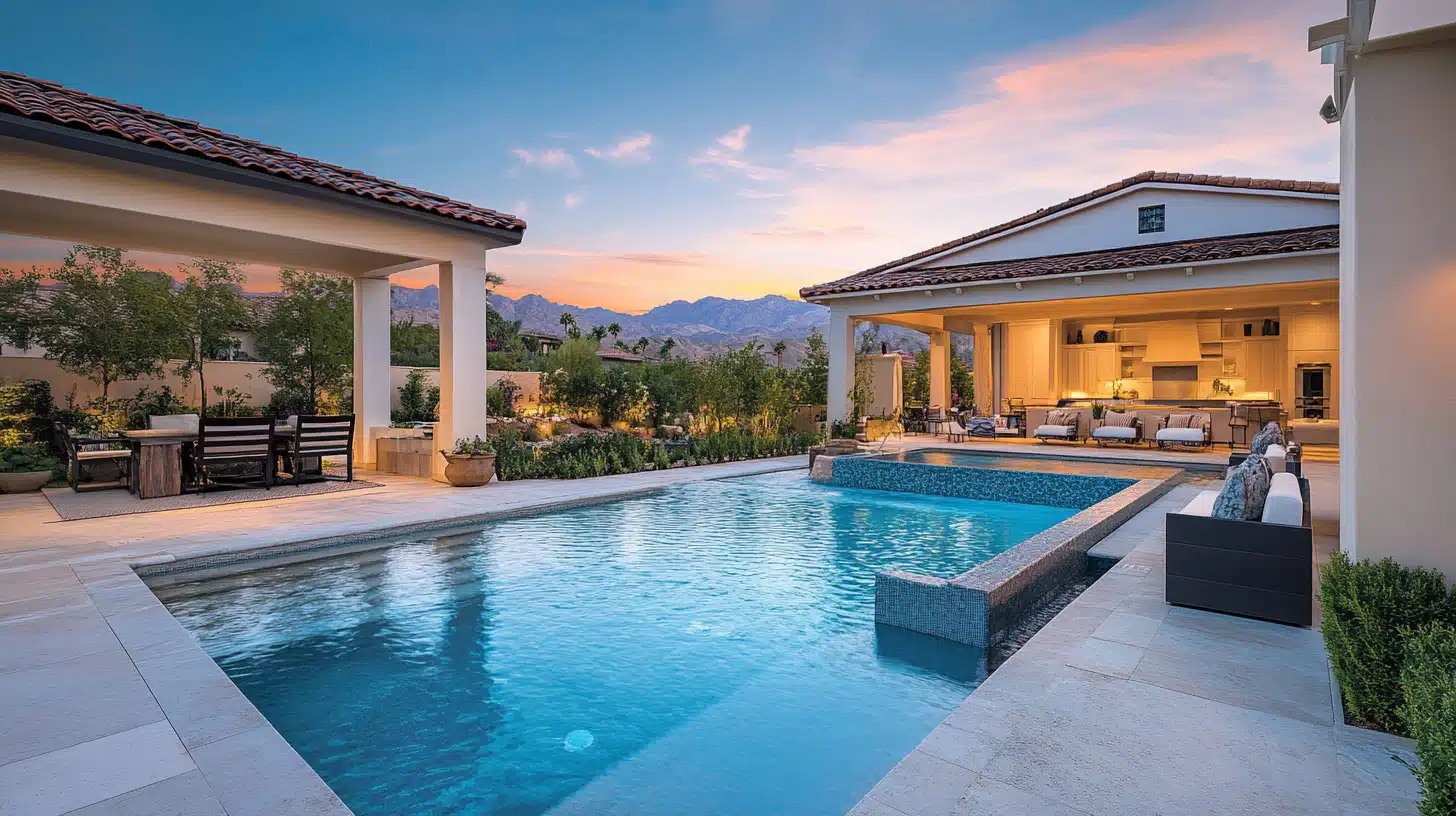Regular pool maintenance is key to keeping your pool equipment in top condition. The most effective way to extend the life of your pool equipment is with consistent cleaning and preventative care.
Doing so guarantees that pumps and filters function properly, preventing costly repairs. Checking your equipment often can catch problems early, making it much easier to deal with.
Besides regular cleaning, consider using protective covers. This helps reduce wear and tear from the weather and keeps debris out of your pool. Investing in newer, more energy-efficient equipment may also be a wise decision. New models, like variable-speed pumps, often last longer and save money on energy bills, making them a fantastic option.
For residents of Texas, pool maintenance in Austin can help keep equipment in great shape all year round. Local services offer expert cleaning and repair options, guaranteeing a stress-free swimming environment. Keeping your pool equipment running smoothly provides lasting benefits and a more enjoyable pool experience.
Regular Maintenance and Care
Proper maintenance can significantly extend the lifespan of pool equipment. Regular cleaning, monitoring, and balancing of water chemistry, along with attention to the filters, help in avoiding costly repairs.
Cleaning and Monitoring
Regular cleaning and monitoring are important to keep pool equipment in good shape. Leaves and debris can clog the pump basket and strain the system. Cleaning the basket weekly can prevent this issue. It’s also useful to check for leaks in hoses or worn-out seals.
Regular visual inspections of the entire pool setup can catch minor issues before they become significant problems. Skimming the pool surface and removing debris not only keeps the water clean but also reduces pressure on the pump and filtration system.
Balancing Water Chemistry
Maintaining proper water chemistry is important for both swimmers’ health and the longevity of pool equipment. Improper pH levels can lead to corrosion or scale buildup, affecting equipment like liners, pumps, and pipes.
Testing the water regularly, at least once a week helps maintain the right balance of chemicals, including chlorine and alkalinity. Products are available that help adjust these levels quickly. Keeping water chemistry in check reduces stress on equipment, potentially saving money on repairs or replacements down the line.
Filter Maintenance
Filters play a major role in keeping pool water clean and equipment running smoothly. Each requires different care, whether it’s a sand, cartridge, or diatomaceous earth filter. Cartridge filters should be removed and cleaned every few weeks. Sand filters need backwashing to remove trapped particles, and this should be done according to the manufacturer’s guidance.
Diatomaceous earth filters require frequent backwashing and an annual complete cleaning. Regular filter maintenance guarantees optimal performance and longevity. Skipping these tasks can lead to cloudy water and more significant issues with the pool’s operating system.
Advanced Equipment Care
Proper care can greatly improve your pool equipment’s longevity. Seasonal servicing, upgrading components, and seeking professional inspections are necessary. These steps help maintain efficiency and prevent unexpected breakdowns.
Seasonal Servicing
Regular servicing during the off-season is key to keeping pool equipment in good condition. This involves cleaning and storing parts like filters and pumps safely. Draining and covering equipment helps prevent weather damage.
Checking for worn-out seals, brittle hoses, and clogged filters guarantees everything is ready for the next swimming season. Simple steps like lubricating o-rings and cleaning out baskets can stop problems before they start. Taking proactive measures during colder months can save time and money when summer arrives.
Upgrading Components
Old equipment can become inefficient over time. Replacing outdated parts with newer, energy-efficient options can extend their lifespan. Modern variable-speed pumps use less energy and reduce wear on mechanical components. This can significantly lower energy bills.
Advanced filtration systems are designed for durability and longer operation without clogging. Replacing old filters and heaters with new models can improve performance, making pool maintenance easier. Investing in upgrades when necessary guarantees equipment runs smoother, lasts longer, and offers better performance.
Professional Inspections
Having a professional inspecting pool equipment regularly helps catch issues early. Experts can spot problems that a regular pool owner might miss. These inspections often include checking electrical connections, testing water chemistry, and evaluating equipment performance.
A professional can advise on necessary repairs or upgrades, preventing costly failures in the future. They can also provide maintenance tips tailored to specific pool setups. Regular expert input prevents problems and offers peace of mind, knowing the pool is safe and ready for use.
Conclusion
Taking good care of pool equipment can save money and help avoid problems. Regular maintenance is key. Checking and cleaning items like pumps and filters is important for keeping everything working well. Replacing or upgrading worn-out parts can also extend their life.
Pay attention to water chemistry. Balanced water helps prevent damage. It’s also wise to use a pool cover to protect equipment from weather and debris. This can make a big difference in how long the equipment lasts.
Following these steps helps keep a pool in top shape. Equipment lasts longer, and the pool remains a pleasant place to swim. Regular care keeps everything functioning smoothly for years to come.

